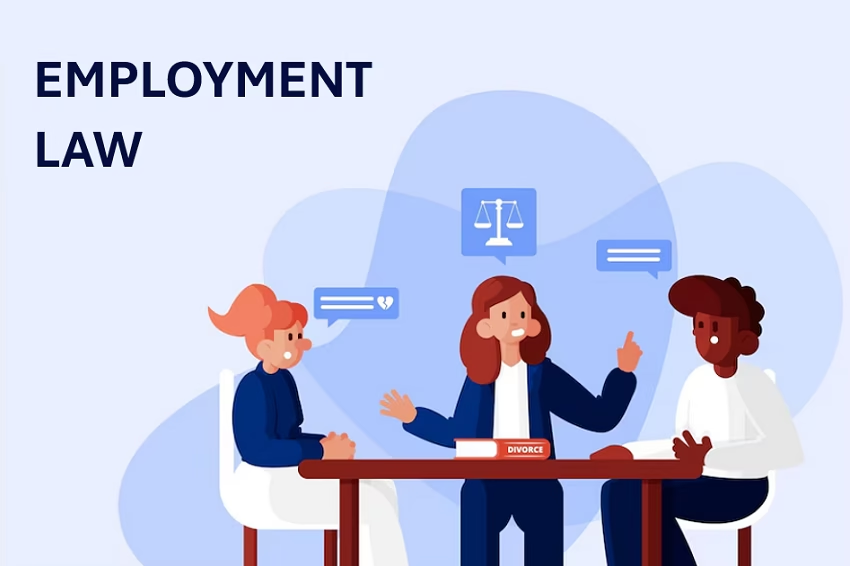Separation is a difficult process, which becomes more unbearable when your children are involved. It can become more emotionally charged in such situations. However, there are many ways in which decisions regarding child custody can be made outside the court, which also needs a constructive and collaborative approach to achieve the best outcomes. In this article, you will learn about the child custody mediation checklist, which will help you understand various factors involved in child custody and how you can seek assistance, who will help you achieve the best outcomes.
Why is Having a Child Custody Mediation Checklist Important?
Here are some of the best reasons why you need to have such a list while going through a divorce, given below:
Focus and Clarity
While going through such a harsh phase of your life, you won’t be able to focus and have clarity of things due to the emotional trauma that you are facing this time. It may be quite difficult, but you need to have focus and clarity on all the factors involved in child custody that should be addressed during mediation.
Organization
You should have a structured list of topics that will keep the discussion on track and help you address all the important details without missing a single thing.
Communication Tool
You can use this list as a tool to communicate your concerns and priorities with your former partner before or during the mediation.
Decision Making
This list is also important to help you make a workable parenting plan that focuses on the well-being of your children.
Aspects Involved in a Child Custody Mediation List
Given below are some of the aspects that are a part of a list for mediation during child custody. It will definitely help you achieve a favourable custody solution.
Important Custody Decisions
It is divided into two parts; legal and physical custody. The former involves decision-making authority with respect to the child’s upbringing, such as education, healthcare, religious practices, and extracurricular activities. On the other hand, physical custody determines where the child lives and spends time with each parent. The aspects involved in these two factors are:
| Legal Custody | Physical Custody |
| Sole Legal Custody, in which one parent has the sole authority. | Sole physical custody, in which the child lives with one parent. |
| Joint Legal Custody, in which both parents are involved in decision-making. It requires open communication and cooperation | Joint Physical Custody, in which the child lives with both the parents on a schedule that is already determined. It has two variations: Split custody and Nest Custody. In the former, the child spends equal amounts of time with each parent. Whereas, in the latter, the child will remain at the same home, while the parents make separate living arrangements. |
Parenting Time
It determines the time that a child spends with each parent. It will definitely help you ensure you spend a great deal of time with your kid without causing any problems. Here’s how you can make the best of it to spend quality time with your offspring:
- Create a detailed schedule that outlines regular parenting time for each partner.
- You have to consider factors like the age of the child, school schedule, extracurricular activities, and special requirements.
- You should also address vacation and holiday arrangements. For example, alternating holidays, shared vacations with both parents, etc.
- You also need to establish communication protocols for scheduling changes, emergencies, and regular updates.
Transition of Custody
It is the act of picking up or dropping off your child when it is time for them to be with the other parent. It often goes smoothly when the parents have clarity of where, when and how it should happen. You can ensure a smooth custody transition in the following ways:
- Plan a predictable and seamless transportation process between the homes of both parents in such a way that it lowers the disruption for the child.
- You should also discuss the logistics, like transportation arrangements, drop-off and pick-up routines, and communication during transitions.
- You need to address potential issues like managing school drop-off and pick-up on alternating days.
Custody Sharing Costs
There are expenses that also prevail while sharing custody. So, here are the factors that you have to consider while thinking about your child’s upbringing, given below:
- Healthcare: Insurance premiums, co-payments, and medication.
- Education: Tuition, school supplies, and extracurricular fees.
- Childcare
- Clothing and personal needs
You should also consider the income disparity between the needs of the parent and child. You can also explore options like child support payments or a cost-sharing agreement that is formal in nature. A lawyer specializing in child custody can give you better advice on the legal aspects of child support and financial agreements.
Birthdays and Holidays
Sometimes, children become sad when they are not able to spend big days with their parents. You can make it a bit easier on them with the help of the following considerations:
- You should understand how you can celebrate birthdays and holidays while considering the preferences of both parents.
- You can explore options like alternating holidays, shared celebrations, or extended time with one parent on specific holidays.
- You also need to maintain communication and flexibility to accommodate special occasions and unexpected circumstances.
School Vacations
When both parents are working, you need to figure out how to care for your children during school vacations. Here’s how you can plan that out:
- By determining how you can handle school breaks, such as Christmas and Easter.
- You should also consider potential travel plans during vacations. While doing so, you have to establish communication protocols if a parent wants to take the child on a trip, including notification timelines or travel restrictions.
- You can also discuss how extracurricular activities and camps should be handled during breaks.
- You should also consider factors like unexpected school closures and holidays due to weather conditions or other emergencies. This will help you take care of your child during these times and ensure zero disruption or trouble for them.
Schedule Changes or Modifications
Sometimes, there are some issues or other aspects that can interfere with your parenting schedule. For instance, a child or parent falling ill. To tackle such issues, you can do the following things:
- Anticipating Future Changes: You should discuss with your partner about the ways to handle changes due to work requirements, relocation, or changing needs of a child.
- Communication: Having a clear communication method, like email or phone calls, to address alterations in the schedules.
- Notice Period: You should also agree on a minimum time period that has been given for requesting schedule changes. This will help you avoid any last minute changes.
- Dispute Resolution: You also need to have a process to solve any disagreements that can arise while modifying the schedules. This also involves mediation by a lawyer specializing in family law, which will help you and your former partner reach an equitable solution.
Furthermore, you should also maintain flexibility in your agreement, given that there can be unexpected changes in life. So, it is important to establish a process that can lower the chances of a conflict.
Communication
Even if you and your former partner are not on good terms, you should be able to communicate with them about your child. For that, you can consider the following aspects:
- Preferred Methods: You should decide on the method of primary communication for co-parenting issues, such as email, text, or an app specially made for co-parenting.
- Frequency: You also need to determine the purpose and frequency of the communication, like daily updates, weekly check-ins, or contacts during emergency situations.
- Prevention of Conflicts: You should also have rules for respectful communication, avoid instigative language, and focus on your child’s requirements.
- Communication With the Third Party: You and your partner should also determine whether communication should only involve parents or if grandparents or other parties can also be involved.
The most important thing while communicating with your former partner is to maintain respect and professionalism each time, even during disagreements. You can make use of a communication log to track conversations and decisions.
Dispute Resolution
Disputes can arise while co-parenting in many situations. Sometimes, you would allow your child to go on a camping trip, which can be disagreed with your former partner, who is also the co-parent. During such cases, you can do the following things:
- Mediation Revisit: It is the first step you should take when there are disagreements in the future. You can also involve your lawyer or any other person to act as a mediator and ensure a justified resolution.
- Alternative Resolution of Disputes: You can explore options like arbitration, or parenting coordination to ensure proper resolution of disputes outside the court.
- Legal Consultation: You can also consult your lawyer according to a clause outlined to do so.
Additionally, You can prioritize mediation and ADR to avoid further expenses and conflicts while co-parenting. However, you have to understand when it is necessary to seek legal intervention to protect the best interests of your child.
Unique Challenges
Parenting is not at all an easy task, especially when you and your partner are separated. Furthermore, there are some other unique challenges you should consider, given below:
- New Partners: Unwanted situations often occur when you or your former partner are having new partners. To avoid any conflicts, you need to discuss introductions and interactions between the new partners and your children. This can ensure a healthy transition.
- Special Needs: You also need to address special needs of your child, including medical care, educational support, or therapy appointments(if required).
- Long-Distance Parenting: If your former spouse is living far away, then you need to create a plan that will help you maintain a strong bond with your child residing with them. This includes travel arrangements and video calls.
- Cultural Differences: If you and your former partner belong to different cultures, the chances of having huge cultural differences are quite high. To avoid such things, you have to discuss how you can handle those differences in your parenting approach. This can help your children respect both cultures and understand them deeply without any problems.
Every Situation is also unique. So, be prepared to address any particular challenges in your family dynamic with honesty and openness during mediation.
How Can a Child Custody Lawyer Help You In Ensuring Fair and Justified Child Custody Resolution?
As mentioned above, you need to have a lawyer specializing in child custody by your side. They can help you in mediation and other following aspects:
Explaining Legal Aspects
These people can provide clarity on legal implications of different custody arrangements to ensure your agreement aligns with the family law.
Representing Your Interests
They will offer guidance on negotiating terms that focus on the well-being of your children while considering your unique circumstances.
Drafting a Formal Agreement
The lawyer will also draft a legally binding plan for parenting that showcases the agreements reached in mediation.
Furthermore, having a legal expert is necessary in many unexpected situations where co-parenting cannot be feasible, for example, substance abuse. They can help you reach a better resolution that can be really beneficial for the welfare of your children and securing their future from any unnecessary situations. They can also help you understand your rights as a parent and address complex issues that can often be detrimental to your children’s welfare. Furthermore, their intervention can save you a lot of money and time you can end up spending on litigation.
Final Verdict
Child custody mediation helps parents to create a parenting plan that emphasizes the needs of their children in a collaborative manner. It can help you navigate the parenting process quite easily and create a positive framework for shared parenting. However, you also need to consider various factors involved in co-parenting, especially when you are separated from your partner. This will further help you avoid conflicts and ensure the needs and requirements of your child are being met without any problem. Thus, it is important to have a child custody mediation list for the well-being of your loved ones.






